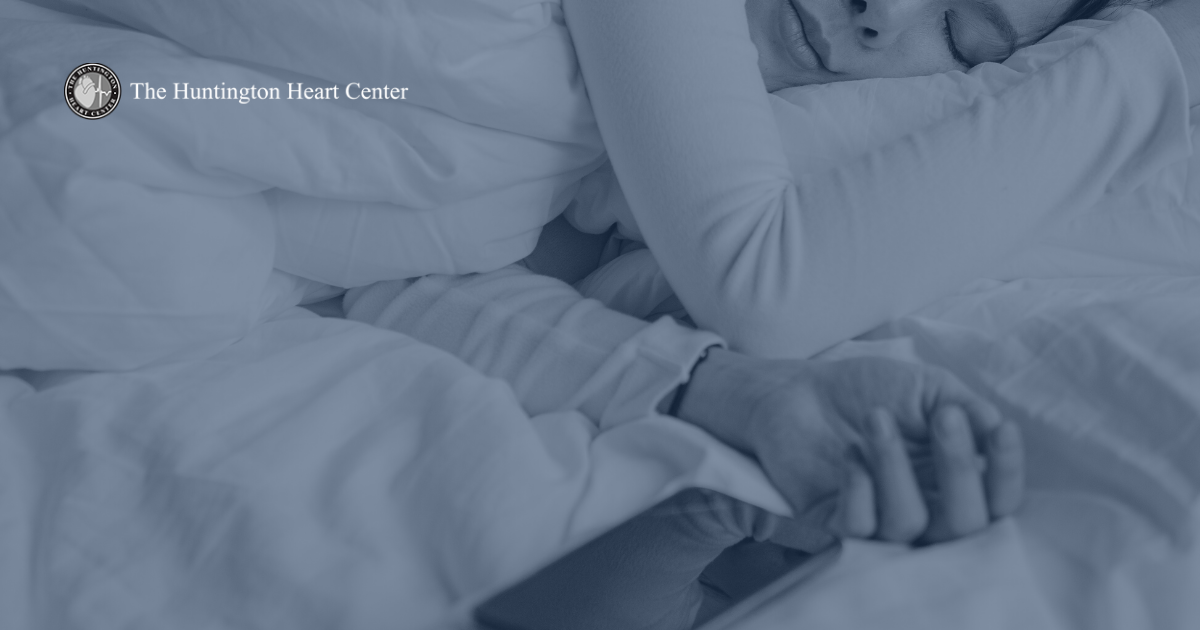Ways to Improve Your Sleep Fast
 Sleep is a critical part of not only staying energized throughout the day but maintaining good general and cardiovascular health. Proper sleep can reduce the risk of obesity, high blood pressure and other risk factors that can ultimately lead to heart problems. With such a powerful tool at our disposal, however, it is surprisingly hard to get enough sleep. As a result, most Americans are chronically sleep deprived and risking serious health disorders as a result.
Sleep is a critical part of not only staying energized throughout the day but maintaining good general and cardiovascular health. Proper sleep can reduce the risk of obesity, high blood pressure and other risk factors that can ultimately lead to heart problems. With such a powerful tool at our disposal, however, it is surprisingly hard to get enough sleep. As a result, most Americans are chronically sleep deprived and risking serious health disorders as a result.
Better sleep can actually happen overnight. Some techniques for better sleep you can start this very evening. Others will take some time to develop good habits.
What you can do now…
Diet and exercise play a big part in getting proper sleep. There is the very obvious advice such as avoiding caffeine and sugar in the few hours before you go to bed – a given. These stimulants can certainly cause difficulty falling asleep. But did you know that drinking alcohol can also worsen sleep? Yes, you may feel more tired and relaxed after having some alcohol, but consuming it actually reduces the quality of your sleep leaving you tired in the morning. Exercise releases endorphins that reduce pain, improve mood and promote good sleep at night. Make sure to get a half hour or more of exercise during the day. But don’t exercise too close to bedtime as this could have the opposite effect.
Avoiding television and looking at electronic devices in the hour or so leading up to bed is also a great way to get sleepier faster and to improve the quality of your sleep. The blue light that emanates from electronic devices has a waking effect on our brains. Even color shifting apps on computers and phones don’t completely eliminate the problem. Further, reading or watching TV right before bed can stimulate our brains and make it harder for us to fall asleep.
Keeping the room dark and cool is another great way to ensure the best environment for sleep. Many of us sleep in warm environments that make it difficult to fall asleep and sleep well. Further, any ambient light, whether from outside or inside can make it more difficult to fall asleep and stay asleep throughout the night.
Longer term ways to improve sleep
Stress is a killer of quality sleep. We do not pretend that you can eliminate stress entirely, however how you manage it can make a big difference in how you sleep. Managing stress requires knowing your triggers and having an outlet such as exercise, yoga or meditation that allows you to nip it in the bud, deflect it, or zap it away entirely.
Years of poor sleep may also force you to depend on sleeping aids to get to bed and stay asleep. While these can be useful in the short term, for insomnia problems; longer-term, the body can develop dependence and ultimately end up sleeping worse as a result. Speak to your doctor or sleep specialist such as Dr. Anwar here at the Huntington Heart Center to learn more about how to wean off of sleeping aids and improve your sleep.
Bedding is also an important part of how we sleep. Unfortunately, too many of us sleep on mattresses that have been worn out by years, or even decades, of use. The same holds true for pillows. While both may seem to be significant investments, when you consider how long we spend in bed, it is really important that our mattresses, sheets and pillows all work together to promote healthy, restful sleep.
Over the longer-term you may also wish to standardize the times which you fall asleep and when you wake up. By keeping this consistent day in and day out, your body becomes accustomed to a more regular sleep pattern. This allows for falling asleep faster and sleeping better through the night.
Of course, if all of these tactics fail to improve the quality of your sleep and you remain tired throughout the day, you may need to be evaluated for other potential conditions. One such condition is sleep apnea. Sleep apnea occurs when the airway is temporarily blocked at night causing a lack of oxygen. Typically, those who are suffering from obesity have a much higher risk of sleep apnea and subsequent cardiovascular problems. Most of the time, sleep apnea can be identified by very loud snoring – something that your partner may have complained about recently or for years. Other medical conditions may also be to blame for your inability to fall asleep or stay asleep.
Any of these can be identified and treated by a qualified sleep center like the one at The Huntington Heart Center. We start with a comprehensive sleep study that includes sleeping overnight at our facility. From there, we can diagnose sleep disorders and develop a plan to help you treat them, improving your sleep and general health.
If you would like to schedule an appointment at Sleep Center, we encourage you to contact us to schedule an appointment.







